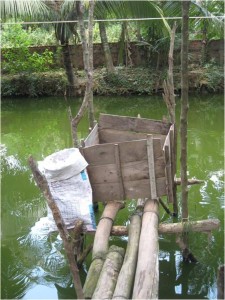And it’s not just Vietnam.
Dirty toilets and bathrooms gave 40 per cent of Ho Chi Minh City students diarrhea, according to UNICEF Viet Nam.
 Last month, the city’s Health Department reported that 220 students at District 12’s Nguyen Khuyen Elementary School were unable to go to school, as they suffered a digestion-related disease caused by unclean school toilets. Two children in the southern city died in July from a similar condition.
Last month, the city’s Health Department reported that 220 students at District 12’s Nguyen Khuyen Elementary School were unable to go to school, as they suffered a digestion-related disease caused by unclean school toilets. Two children in the southern city died in July from a similar condition.
The Ministry of Health reported 3,719 diarrhea cases in HCM City in the first six months of 2014 out of 301,570 nationwide in the first eight months.
School bathrooms and toilets in urban areas of the city are often in poor condition due to the large number of students and teachers that use them, as well as the lack of soap and fresh water for cleaning.
 The problem is even worse in rural areas of HCM City, where schools have no bathrooms at all. In those areas, 27 per cent of children have to go to the toilet outside the school.
The problem is even worse in rural areas of HCM City, where schools have no bathrooms at all. In those areas, 27 per cent of children have to go to the toilet outside the school.








 diarrhea.
diarrhea. .jpg) seeing children returning to class with diarrhea, a key symptom, she said.
seeing children returning to class with diarrhea, a key symptom, she said.